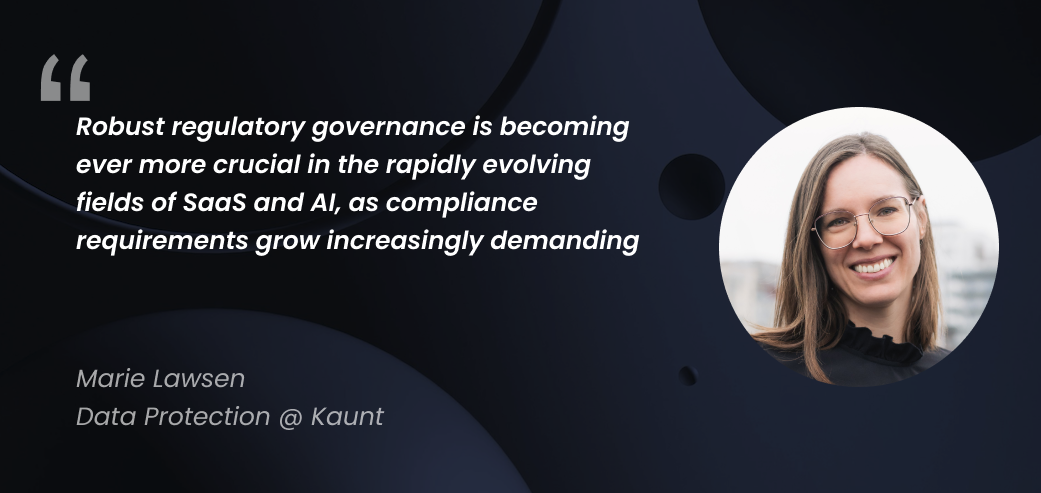Navigating the Evolving Landscape of Data Protection and Information Security in SaaS and Cloud Services
With stricter regulations, SaaS firms must reinforce their ISMS and use their data protection expertise

As the regulatory environment becomes more stringent, companies in the SaaS, AI, and cloud computing sectors must prioritize the development and strengthening of their ISMS and leverage their experience in data protection. By doing so, they will be well-equipped to meet the rigorous demands of the new compliance requirements, maintain competitive advantage, and assure customers of their commitment to safeguarding their data.
In the fast-evolving fields of Software as a Service (SaaS), Artificial Intelligence (AI), and cloud computing services, ensuring robust data protection and information security has become paramount. With the introduction of new regulatory measures like the AI Act, NIS2 Directive, and DORA, compliance requirements are becoming increasingly demanding, pushing enterprises to reassess and bolster their security strategies.
Increasingly Demanding Compliance Requirements
Regulations such as the AI Act, which sets out comprehensive rules for AI applications, seek to ensure that AI systems in Europe are safe, ethical, and trustworthy. Similarly, the NIS2 Directive aims to improve the cybersecurity resilience across the EU by enhancing the requirements for critical infrastructure sectors. The Digital Operational Resilience Act (DORA) is another crucial regulation focusing on ICT risk management in the financial sector.
These regulations demand more from organizations in terms of transparency, risk management, and incident response capabilities. The primary aim is to safeguard sensitive information and ensure that businesses in sectors like SaaS, AI, and cloud services adhere to high standards of security and responsibility.
Importance of a Solid ISMS
A robust Information Security Management System (ISMS) is essential for effectively navigating the complexities of these regulations. Companies with mature ISMS frameworks are better positioned to adapt to the regulatory landscape, ensuring ongoing compliance through regular risk assessments and continuous improvement practices.
Leveraging Experience in Data Protection
Experience in data protection and information security can give companies a significant edge. Organizations that have historically invested in comprehensive security measures are now reaping the benefits, as they are better prepared to integrate the requirements of new regulations quickly and efficiently. This preparedness not only aids in compliance but also in building trust with consumers who expect high levels of data privacy and integrity.
Kaunt Leading by example
At Kaunt, we are dedicated to ensuring that all clients experience our strong commitment to compliance. We employ an ISO-based methodology and maintain comprehensive written procedures that govern our compliance obligations and customer onboarding processes.
Kaunt is certified in ISO27001 and ISO27701 and also complies with ISO27018 and the NIS2 Directive. These certifications and compliance efforts underscore Kaunt's dedication to adhering to the highest standards of data protection and information security.
By upholding these standards, Kaunt ensures robust protection for its users' data while efficiently navigating the complexities of evolving regulatory requirements.
As a DPO, in the coming years, I would focus on ensuring that the organization effectively documents and upholds requirements related to the use of AI. This includes carefully interpreting new regulations and responding to customer needs, while adapting existing practices for risk assessment, data minimization, and personal data protection. Additionally, there will be an increased emphasis on model governance, employee awareness and training, and transparency with customers to maintain trust and ensure compliance with evolving regulatory standards.
Additionally, I would carefully monitor the development in cross-jurisdictional data transfers as customers continue to increase their requirements on data residency.
Reach out to Kaunt’s DPO Marie Martens Lawsen at https://www.kaunt.com/company/contact if you are a partner or potential partner that wish to discuss compliance.

